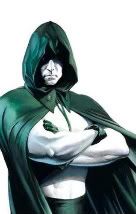
|
|
||||||||||||||||||||
|
|
 |
|
||||||||||||||||||
|
|
||||||||||||||||||||
|
|
|
|
|
|
|
|
|
|
||||||||||||
|
|
|
|
|
|
|
|
|
|||||||||||||
|
|
||||||||||||||||||||
|
#1
|
||||
|
||||
|
The order in which you write your scripts
This post is for anyone that's written scripts before...
Do you write it from start to finish starting on scene 1 and ending with The End? Or do you skip around a bit and write a scene here and scene there until you've got them all done and then piece them together? The reason I ask is because I've always been one to start at the beginning and write chronologically, but on the current script I am working on, it seems to almost make more sense to write a few of the middle scenes first because chronologically they take place first (2 characters backstorys.) It seems to make sense to write those out first and then proceed from start to finish as usual, but I was just wondering what everyone else's take on it was as well.
__________________
Click for bwind22's 1 Minute Movie Reviews! |
|
#2
|
||||
|
||||
|
I always start on page one, scene one - whether it is in chronological order or not.
The opening scene of any film is one of he most important things to nail. it sets the tone for the rest of the script. I have written both linear and non-linear scripts, but always start with the first scene of the movie and work my way to the end. This way the story unfolds like a movie to me and I have a strong grasp of the pacing (which I personally find is the most oft-overlooked element of scriptwriting) and I'm open to letting the story tell itself to me. Only after finishing the entire first draft do I go back and begin to tweak the earlier scenes to fit what the story has evolved into. I never outline, but I always write character histories (filled with tons of info that will never make its way into the script) and the basic story arc before starting the script.
__________________
"Little, vicious minds abound with anger and revenge, and are incapable of feeling the pleasure of forgiving their enemies." Earl of Chesterfield "A man that studieth revenge keeps his own wounds green, which otherwise would heal and do well." Francis Bacon |
|
#3
|
||||
|
||||
|
I am unclear on what the difference between those 2 would be. ???
__________________
Click for bwind22's 1 Minute Movie Reviews! |
|
#4
|
||||
|
||||
|
Outlining is marking down beat-by-beat exactly what will happen in the story A-Z in very specific detail. A stroy arc is much simpler - it is a series of broad strokes and big set-pieces on which the story will be draped.
As long as I know where the story is headed and I have detailed character backstories, I can drop the character into the particular set-up and allow them to surprise me with their behavior. Does that help at all?
__________________
"Little, vicious minds abound with anger and revenge, and are incapable of feeling the pleasure of forgiving their enemies." Earl of Chesterfield "A man that studieth revenge keeps his own wounds green, which otherwise would heal and do well." Francis Bacon |
|
#5
|
||||
|
||||
|
Well, this is actually a difficult question. I've written 3 scripts for short films. One was a comedic adaptation of The Iliad, then I did a comedic adaptation of The Odyssey (which can be viewed in my signature), and then I adapted a one act play that me and another guy wrote. The only thing I did that was 100% original was a 3 minute silent film that I didn't script. I just did a storyboard an hour before it was due for class.
Though, I think it would depend on the plot. One idea I have is kindof a Kids/Dogme 95 type thing, and it's not really story driven, so I'd probably write that script as I think of scenes, and worry about the order when I'm ready to storyboard and film. Other ideas I have are more linear, and I'd probably write the script as such.
__________________
 ===  WATCH MY MOVIES(UPDATED: 5/7/08, "No Exit") RING OF HONOR: BEST WRESTLING IN THE WORLD  TOO GOOD FOR THE HDC BATTLE ROYALE |
|
#6
|
||||
|
||||
|
I always started from beginning to end
But I do have an outline before hand. I gather the major scenes and characters and everything else I want to be in the story and I make it off that.
__________________
"o.k., we'll go get some fucking pancakes and then get laid" Top 10 Horror Movies (No Order) 1. House Of 1000 Corpses 2. Phantasm 3. The Texas Chainsaw Massacre (74) 4. Haute Tension 5. The Blair Witch Project 6. Saw 7. Hellraiser II 8. The Thing (82) 9. Dead Alive 10. Halloween |
|
#7
|
||||
|
||||
|
The best thing to do first is your character backgrounds and a synopsis of the story (usually 10-15pgs for a feature length). These both form guidelines to writing the script. I find writing from beginning to end the easiest as you will generally tweak things as you go.
Also, make sure you use the proper format or get a computer program that does it for used (I used Final Draft). It gets you in the habit of doing it properly and is the most proffessional and easiest to read. Probably the most important thing is that your script should only consist of action and dialogue. It is not a novel and you cannot say Bob felt bad when he killed zombies. You can only put Bob killed zombies. It is the actor's job to portray it visually, and the director's to interpret the script. Hope this helps. |
|
#8
|
||||
|
||||
|
Quote:
I love hearing everybody's process. It's all about the process for me. I try different approaches, but usually fall back into the familiar: character bios, general concept, tone (quite often the hardest thing to nail down), a couple of set pieces and then let it flow. While writing I try to immerse my physical self into the setting as much as possible. I try to eat what my characters would eat, dress how they dress - a little insane, I know...at least the wife thinks so:D But these little bits of physicality can worm their way into your subconscious and provide you with a deeper insight into the characters you've created.
__________________
"Little, vicious minds abound with anger and revenge, and are incapable of feeling the pleasure of forgiving their enemies." Earl of Chesterfield "A man that studieth revenge keeps his own wounds green, which otherwise would heal and do well." Francis Bacon |
|
#9
|
||||
|
||||
|
It is a treatment really, I was just trying to speak in general terms. And as much as I procrastinated about doing treatments when I was in class, they actually really help you when you get into writing the body of it. They keep you more focused and allow you to work out plot points ahead of time instead having to do a lot of rewrites (which you will do a lot of anyway).
|
|
#10
|
||||
|
||||
|
I only do a treatment if a producer asks for one.:D
Granted my rewrite process can be a little painful, but working with a partner keeps focus tight. I never though I'd be the type to write with someone, but now I find the counter-point to be invaluable. Here's another question - how long does it take to finish a first draft? I've written over 20 feature-lentgh scripts (the first 5 were terrible) most on spec, some for hire. My partner and I usually take 1 month to finish a first draft, but the film we have going into production this month wes written in 10 days... but we've since done 9 rewrites as per producer/director/actor notes - kind of sick of writing this one:o
__________________
"Little, vicious minds abound with anger and revenge, and are incapable of feeling the pleasure of forgiving their enemies." Earl of Chesterfield "A man that studieth revenge keeps his own wounds green, which otherwise would heal and do well." Francis Bacon |
 |
|
|